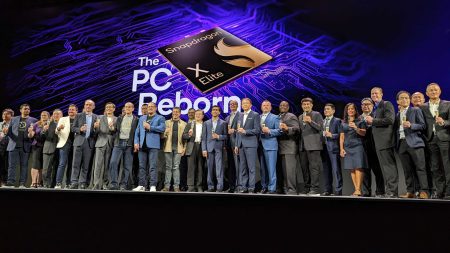How do you bring the benefits of gen AI, a technology typically experienced on a keyboard and screen, into the physical world?
That’s the problem the team at Ramblr.ai, a San Francisco-based startup, is solving with its powerful and versatile 3D annotation and recognition capabilities.
“With Ramblr you can record continuously what you are doing, and then ask the computer, in natural language, ‘Where did I go wrong’ or ‘What should I do next?†said Frank Angermann, Lead Pipeline & Infrastructure Engineer at Ramblr.ai.
Gen AI for the real world
One of the best examples of Ramblr’s technology, and its potential, is its work with the international chemical giant BASF.
In a video demonstration on Ramblr’s website, a BASF engineer can be seen tightening bolts on a connector (or ‘flange’) joining two parts of a pipeline. Every move the engineer makes is recorded via a helmet-mounted camera. Once the worker is finished for the day this footage, and the footage of every other person working on the pipeline, is uploaded to a database.
Using Ramblr’s technology, quality assurance engineers from BASF then query the collected footage from every worker, asking the software to, ‘Please assess footage from today’s pipeline connection work and see if any of the bolts were not tightened enough.’ Having processed the footage, Ramblr assesses whether those flanges had been assembled correctly and identifies any that required further inspection or correction.
The method behind the magic
“We started Ramblr.ai as an annotation platform, a place where customers could easily label images from a video and have machine learning models then identify that annotation throughout the video automatically,†said Frank.
“In the past this work would be carried out manually by thousands of low-paid workers tagging videos by hand. We thought we could be better by automating that process,†he added.
The software allows customers to easily customize and add annotations to footage for their particular use case, and with its gen-AI powered active learning approach Ramblr then ‘fills in’ the rest of the video based on those annotations.
Why MongoDB?
MongoDB has been part of the Ramblr technology stack since the beginning.
“We use MongoDB Atlas for half of our storage processes. Metadata, annotation data, etc., can all be stored in the same database. This means we don’t have to rely on separate databases to store different types of data,†said Frank.
Flexibility of data storage was also a key consideration when choosing a database. “With MongoDB Atlas, we could store information the way we wanted to,†he added.
The built-in vector database capabilities of Atlas were also appealing to the Rambler team, “The ability to store vector embeddings without having to do any more work – for instance not having to move a 3mb array of data somewhere else to process it, was a big bonus for us.â€
The future
Aside from infrastructure and construction Q&A, robotics is another area in which the Ramblr team is eager to deploy their technology.
“Smaller robotics companies don’t typically have the data to train the models that inform their products. There are quite a few use cases where we could support these companies and provide a more efficient and cost-effective way to teach the robots more efficiently. We are extremely efficient in providing information for object detectors,†said Frank.
But while there are plenty of commercial uses for Ramblr’s technology, the growth in spatial computing in the consumer sector – especially following the release of Apple’s Vision Pro and Meta Quest headsets – opens up a whole new category of use cases.
“Spatial computing will be a big part of the world. Being able to understand the particular processes, taxonomy, and what the person is actually seeing in front of them will be a vital part of the next wave of innovation in user interfaces and the evolution of gen AI,†Frank added.
Are you building AI apps? Join the MongoDB AI Innovators Program today! Successful participants gain access to free Atlas credits, technical enablement, and invaluable connections within the broader AI ecosystem. If your company is interested in being featured, we’d love to hear from you. Connect with us at ai_adopters@mongodb.com.
Head over to our quick-start guide to get started with Atlas Vector Search today.
Source: Read More
